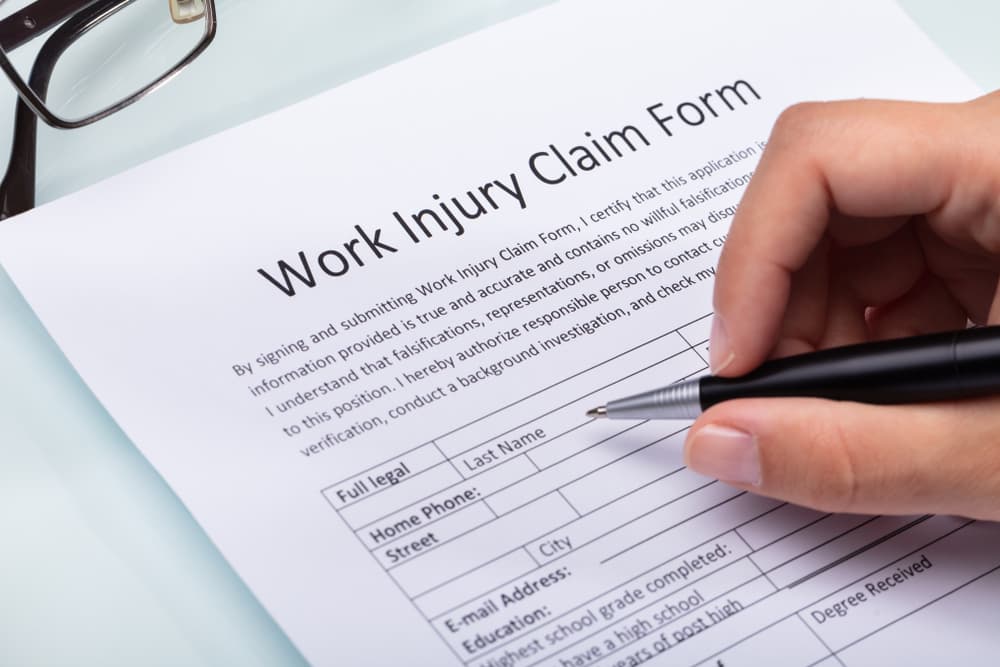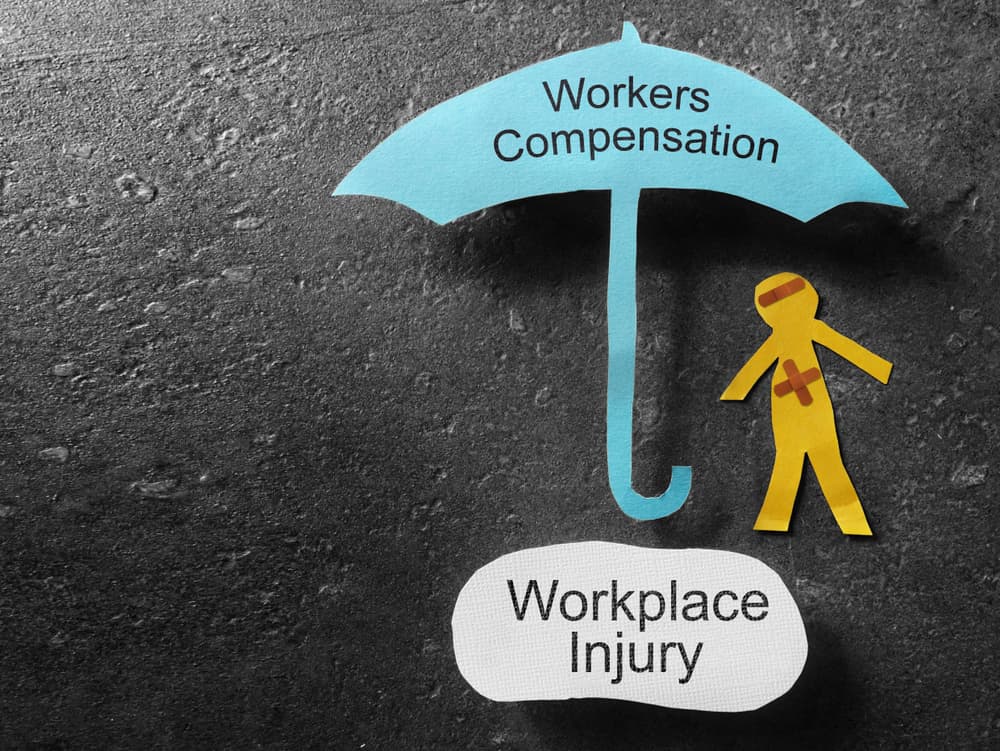Workplace accidents can damage the health of injured workers and cause disruptions in their lives and careers. Employees should know the benefits and programs available when facing such challenges. Learn more about who may qualify for workers' compensation and disability benefits and how an attorney can help. Reach out to a workers compensation lawyer.
Who May Qualify for Workers' Compensation Benefits?

Each state has laws defining who can and cannot receive workers' compensation benefits. Not all workers are eligible for workers' compensation and disability benefits.
Definition of an Employee
To qualify, you must meet the legal definition of an employee. An employee is an individual who performs services for an employer under a contract, whether express or implied, where the employer has the right to control the details of the work.
Independent Contractors and Volunteers
Independent contractors and volunteers are not employees. Independent contractors perform services for an employer but maintain control over how they accomplish the tasks rather than strictly following the employer's policies and procedures. Volunteers are individuals who offer their time and services without expecting payment.
Whether independent contractors and volunteers qualify for workers' compensation benefits depends on the jurisdiction's laws. Some states, for example, may extend workers' compensation benefits to specific volunteers, such as firefighters and emergency medical personnel.
Exceptions and Special Cases
Exceptions regarding eligibility for workers' compensation and disability benefits may apply. Some states exclude domestic employees, agricultural laborers, or seasonal workers. Separate workers' compensation programs may cover certain federal employees and maritime workers.
Did Anyone Say You Aren't an Employee?
An employer may tell you that you don't meet the definition of an employee and are not eligible for workers' compensation benefits. Some employers may not file a workers' comp claim out of ignorance, while others refuse to protect their interests.
An attorney can help you understand your rights and options. If you don't qualify for workers' compensation benefits, for example, you could file a personal injury claim.
Establishing a Workplace Connection
Establishing whether you meet the definition of an employee is the first step in pursuing workers' compensation benefits. Next, you must prove a connection between your injuries and job duties.
Arising Out of and in the Course of Employment
The injury must arise out of and occur during employment to qualify for workers' compensation benefits. It must relate to work duties while the employee was carrying out work-related activities. Proving this can be challenging. You can protect your rights by hiring an experienced workers' compensation attorney.
Examples of Work-Related Injuries
Work-related injuries eligible for workers' compensation benefits can vary widely.
Some examples include illnesses and injuries resulting from:
- Slips and falls.
- Equipment malfunctions.
- Repetitive stress injuries.
- Vehicle accidents while on duty.
- Exposure to hazardous materials or harmful environments.
Injuries sustained during work-sponsored events, such as training sessions or company picnics, may also be eligible for benefits.
Types of Ineligible Injuries
There are some limitations to workers' compensation coverage. Worker's compensation typically does not cover injuries sustained during an employee's regular commute to and from work, for example. Injuries that occur while violating company policies or engaging in horseplay, self-inflicted injuries, or injuries resulting from the use of drugs or alcohol may not be eligible for workers' compensation benefits.
Speaking with a knowledgeable personal injury attorney can help you clarify whether an injury qualifies for compensation.
Workers' Compensation Notice and Reporting Requirements
Injured workers have a responsibility to report their injuries promptly.
The Time Frame for Reporting Injuries
Injured employees must report a workplace injury to their employer within a specific period. This typically ranges from a few days to weeks, depending on the jurisdiction. You must report the injury as soon as possible, even if it initially appears minor.
Some workplace injuries or illnesses develop over time. The time frame for filing the claim may start when the employee learned about or should have reasonably known about the injury or illness.
The Importance of Timely Reporting
You must timely report work-related injuries.
Timely reporting allows for prompt medical treatment and documentation, which can establish the injury's connection to the workplace. It can also protect the employee's eligibility for workers' compensation benefits.
Failure to report within the required period may result in denial of benefits, and the employee may face difficulties proving the injury's connection to the workplace, leading to further legal complications. Failure to report may also give the employer grounds to contest the workers' compensation claim. Prompt reporting also allows employers to address safety concerns and prevent future injuries.
How Do the Type and Severity of an Injury Determine the Level of Benefits?
The law generally classifies workers' compensation benefits as temporary or permanent and partial or total. An experienced personal injury attorney can help determine the proper classification and ensure the injured employee receives the appropriate benefits.
Disability: Temporary vs. Permanent
The severity and duration of your injury determine the amount of compensation. Injuries that result in temporary disability require medical treatment and time off work, but you should recover fully and return to your job. In contrast, permanent disability results from injuries that leave you with lasting impairments, potentially limiting your ability to work indefinitely.
Disability: Partial vs. Total
Disability benefits are partial or total. Partial disability benefits apply when you can still perform some work duties but at a reduced capacity due to the injury. Total disability benefits apply when you can no longer perform work duties because of the injury.
Medical Treatment and Evaluation
Seeking immediate medical treatment following a work-related injury is essential. This ensures your health and safety and provides documentation of the injury, which is crucial for pursuing compensation. Medical records indicate the nature and severity of the injury and the need for ongoing treatment or disability benefits.
The Role of the Treating Physician
The treating physician is responsible for diagnosing the injury, recommending appropriate treatment, and providing essential documentation to support the claim. The insurance company may ask the treating physician to assess your ability to return to work and determine any work restrictions that may be necessary.
Independent Medical Examinations
The employer or the insurance company may request an independent medical examination (IME) by a physician not involved in your treatment. The IME can provide an unbiased evaluation of your condition and determine the extent of any permanent disability.
An experienced workers' compensation attorney can help protect your rights during this process and ensure that the physician conducts the IME fairly and accurately.
Medical Dispute Resolution
Disagreements surrounding appropriate treatment, the extent of disability, or the necessity of medical procedures may arise between you, the treating physician, and the insurance company. A medical dispute resolution process can resolve these issues. A personal injury attorney can provide guidance and representation throughout this process, protecting your interests.
Employer's Compensation Insurance
The law requires employers to maintain employee workers' compensation insurance coverage. This insurance provides financial protection and benefits for employees injured on the job.
Insurance Coverage Requirements
Workers' compensation insurance typically covers:
- Medical expenses.
- Lost income.
- Vocational rehabilitation.
- Disability benefits.
A workers' compensation attorney can help confirm that an employer complies with these requirements and correctly directs the claim to the insurance company.
Involvement of the Insurance Company
The insurance company reviews the claim, evaluates eligibility, and may investigate the circumstances. The company may attempt to deny or minimize claims. An experienced attorney to advocate for your rights and benefits can be invaluable in ensuring a fair outcome.
Contesting a Workers' Compensation Claim
The employer's insurance company may contest a compensation claim, disputing the extent of the injury or eligibility for benefits. Employers may also challenge the claim by asserting that the injury did not occur during employment. A skilled personal injury attorney can provide legal representation and guidance, build a solid case to defend your claim, and secure proper benefits.
Vocational Rehabilitation
Employees with work-related injuries or illnesses that prevent them from returning to their previous job may be eligible for vocational rehabilitation services. These services help injured workers re-enter the workforce by providing the necessary training, job placement assistance, and employment support. These services may involve skill assessments, career counseling, job retraining, job-seeking assistance, and workplace accommodations.
The Influence of Vocational Rehabilitation on Disability Benefits
Receiving vocational rehabilitation services can influence your workers' compensation disability benefits. Participation in vocational rehabilitation may reduce or terminate your benefits, depending on your progress and ability to work.
A skilled personal injury attorney can explain how these services may curtail your benefits and provide guidance on protecting your financial interests during rehabilitation.
Disability Rating and Benefits: What Employees Need to Know
A medical professional assesses the extent of the work-related injury or illness and assigns it a disability rating. This rating helps determine the compensation and benefits the employee can receive. A personal injury attorney can work with the treating physician and the employee to ensure that the disability rating accurately reflects their condition and limitations, advocating for a fair assessment.
Calculating Disability Benefits
Disability benefits calculations reflect the employee's disability rating, their average weekly income before the injury, and how the injury has limited their ability to work. The level and duration of benefits can vary greatly depending on the employee's circumstances and the laws in their jurisdiction.
Temporary disability benefits generally last until the employee has reached maximum medical improvement, when the employee's injury will probably not improve even with further medical treatment. Permanent disability benefits may last longer, depending on the employee's ability to work.
An attorney can guide you through the disability rating process, ensuring you receive your benefits for the appropriate duration.
Dispute Resolution for Workers' Compensation Claim Disputes
Disputes may arise during the claim process, such as the extent of medical treatment, the determination of a disability rating, the calculation of benefits, or the eligibility for vocational rehabilitation services. Mediation, arbitration, and litigation are common methods of resolving these disputes.
Navigating the dispute resolution process can be complex and stressful for an injured employee. A personal injury attorney can provide invaluable assistance in guiding the employee through the various stages of negotiation, mediation, arbitration, or litigation.
Time Limits for Filing a Workers' Compensation Claim
Each jurisdiction has a time limit by which an employee must file a workers' compensation claim. This time limit is called a statute of limitations, and it varies by state. An injured employee can hire an attorney to ensure they comply with the time frame for their specific jurisdiction.
Exceptions to the Statute of Limitations
Some exceptions can include employer fraud, concealment of the employee's right to file a claim, or delayed diagnosis of a work-related medical condition. A knowledgeable personal injury attorney can advise on any exceptions or extensions to the statute of limitations.
Consequences of Missing the Deadline
Failing to file the claim in time can result in losing your right to receive benefits for your injury or illness. Contact an experienced personal injury attorney to ensure you meet all filing deadlines.
A Workers' Compensation Attorney Can Help You Understand Your Rights

Understanding workers' compensation rights and benefits is essential for employees and their families. Navigating the complexities of workers' compensation claims can be daunting. Reach out to a personal injury lawyer.
A skilled attorney can provide invaluable guidance and support throughout the process, from determining eligibility to resolving disputes and ensuring compliance with statutes of limitations. This guidance can allow you to receive the compensation you deserve.







